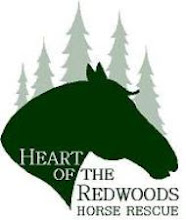For a long time we have led our horses with our heads, but they really need to be led with our hearts.
True Horsemanship, that is, developing a real partnership with a horse requires a certain attitude, a certain frame of mind that is different from the way we habitually think. In fact, to call it a way of thinking is really not accurate. It might be more accurate to call it a way of feeling.
There is a world of difference between the common, everyday, normal horsemanship and the more appropriate, effective and natural development of a true partnership with the animal, the development of True Horsemanship. The normal, everyday approach to horses, rather than being practical horsemanship as you might think, is instead highly impractical. It leaves out the things that are most important to the horse and vital to the healthy development of any relationship. So, what are these two different approaches, these two different ways of thinking? How can we distinguish between the two?
The culture of man, for thousands of years, has been a culture of leading from the head. We have worshipped at the shrine of logic and reason, assuming that these functions of the mind were the ultimate way of dealing with reality. This head oriented approach to life led to the subjugation of women, the enslavement of animals, and the scientific approach to seeking truth. This attitude also led to the disintegration of more heart centered approaches to life and the destruction of cultures living in that way.

There is nothing inherently wrong with logic and reason, but we have been living for thousands of years with the cart before the horse. To get right to the point,we have been living as if the head should be in charge and the heart needs to be controlled. Feelings are to be controlled and sentimentality reduced to a minimum. But, this is really backwards. The heart is that still small voice inside of us, our conscience, that part of us that keeps us on the right track. The head, the mind, with its logic and reason, is for handling the details and solving the problems we encounter along the way. The heart should be in charge.

Of course, this sounds ridiculous to most modern humans, and is usually dismissed out of hand without thinking about it. After all, the mind does not want to lose its position of authority it acquired when the heart was dethroned. The mind will say that if the heart is in charge, everyone will just do what they feel, and no one will work, no one will aspire to improve the lot of man; everyone will just party, eat like gluttons, consume drink and drugs, and engage in wanton sex. course this is not true.

The examples of people who lived from the heart include Mahatma Gandhi, Mother Theresa, Saint Francis of Assisi, and Jesus - a line up of drunks and sex addicts if I ever saw one. It is the subjugation of the heart that leads to all sorts of problems. It takes gluttony, and drugs, and endless sexual adventures to shut the heart up. Heart centered living does not lead to these things. So, what does this have to do with horsemanship? In fact, everything.

- In order to feel empathy for your horse, it is necessary to check in with your heart.
- In order to understand what your horse is feeling you have to feel with your heart.
- To know whether something you are thinking of doing is right or wrong, you have to consult your heart.
- In order to understand what your horse is feeling you have to feel with your heart.
- To know whether something you are thinking of doing is right or wrong, you have to consult your heart.
Then, once you have felt what should be done, your mind is allowed to work out the details. That is the proper order of things - the horse before the cart. And the great thing about this is you don't have to learn how to do it, you merely need to stop shutting down the messages from your heart. You already know how to do it. In fact, you had to be taught how not to!

So, whenever you are working with your horse, work from the heart. Develop a partnership based on the heart.
Rein in your brain
and listen to your heart.
September 12, 2006














No comments:
Post a Comment